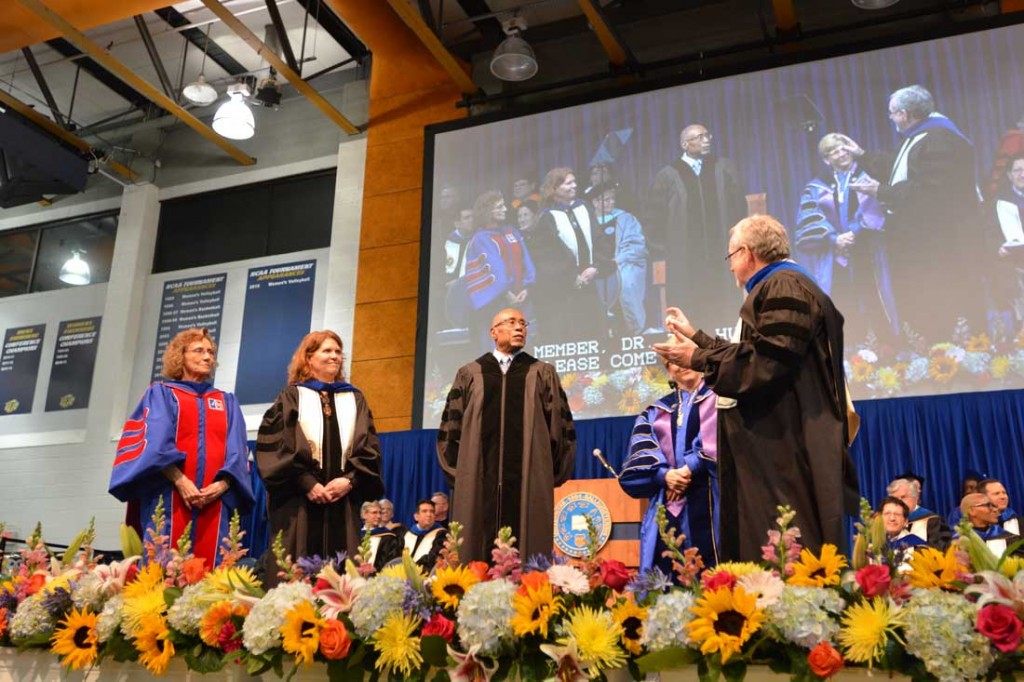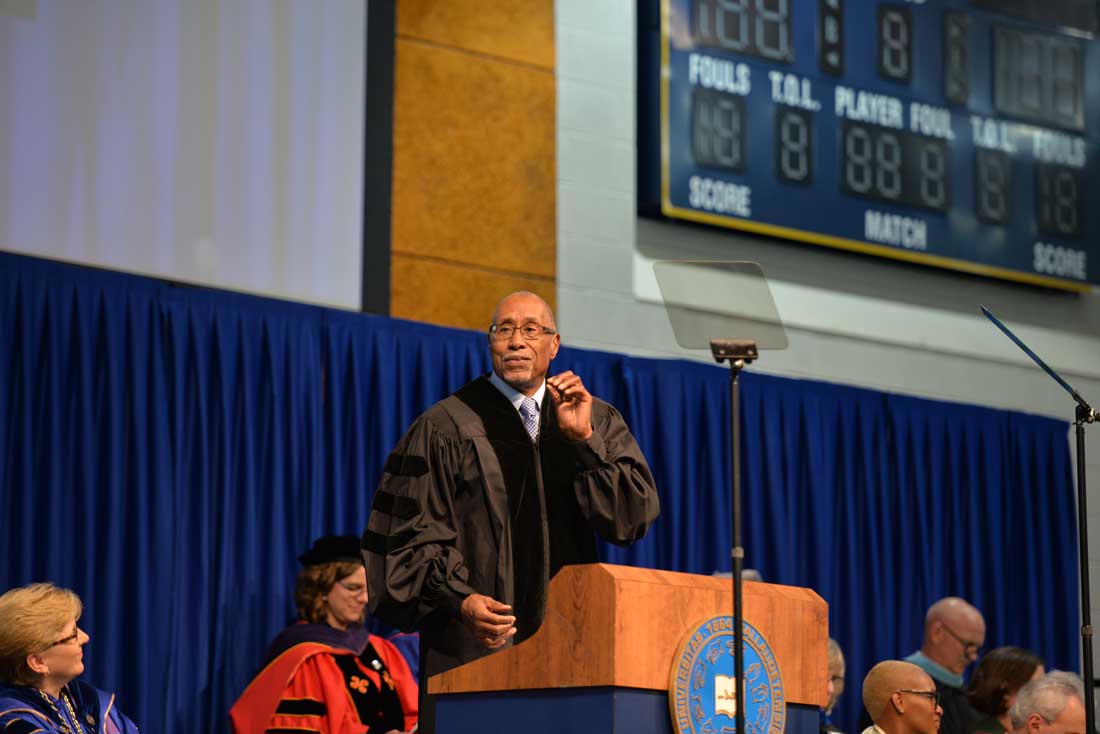Anderson delivers commencement address at Gallaudet University
A University of Arkansas at Little Rock professor and pioneer in deaf education delivered the commencement address to the Class of 2017 during Gallaudet University’s May 12 ceremony.
Located in Washington, D.C., Gallaudet is the world’s only university in which all programs and services are specifically designed to accommodate deaf and hard of hearing students.
Dr. Glenn Anderson, associate professor in the American Sign Language and English Interpreter Education program at UA Little Rock and a 1968 graduate of Gallaudet University, also received the honorary Doctor of Humane Letters degree during Gallaudet’s 147th commencement.
“It’s not easy to put in words how it truly felt,” Anderson said. “No doubt, I was thrilled. It was especially significant and meaningful to me since the honor was from my alma mater.”
In his address, “A Call to Serve,” Anderson urged graduates to follow in the footsteps of Dr. Andrew Foster, the first African American student to graduate from Gallaudet in 1954, and find ways to help their community.
“A reason 2017 is special is because this year is the 60th anniversary that Dr. Andrew Foster traveled to Africa to establish more schools for the deaf than anyone in the history of education of deaf students,” Anderson said. “The Christian Mission for Deaf Africans was founded in Detroit, Michigan, in 1956, and the next year, 1957, Dr. Foster began the first of his many trips to Africa to open doors of opportunity for deaf Africans.”
In acknowledging the obstacles that deaf and hard of hearing students often face, Anderson encouraged the graduates to stand strong in pursuing their dreams.
“We will find doors of opportunity closed. But to overcome obstacles to your dreams, make sure you have a friend with you,” he said. “That friend’s name is persistence. When one door is closed, you and your friend, persistence, move on to another door. If that door is also closed, then you and your friend, persistence, keep moving from one door to another until you find an open door.”

Legacy of breaking barriers
Throughout Anderson’s career, his accomplishments have benefited many people.
Anderson also lays claim to several pioneering roles. He is the first deaf person hired by Michigan Rehabilitation Services to work as a vocational rehabilitation counselor (1970), the first African American alumnus of Gallaudet to earn a doctoral degree (New York University, 1982), and the first African American deaf person to be appointed as a Gallaudet trustee (1989) and to serve as chair of the Board of Trustees (1994 to 2005).
His career has included coordinating a referral and counseling center in New York City, and helping to establish a continuing education program to benefit deaf adults interested in returning to school and completing their college degrees.
In 2008, he joined the Interpreter Education faculty within the Department of Counseling, Rehabilitation and Adult Education at the University of Arkansas at Little Rock. From 1982 to 2008, he served as director of training at the University of Arkansas Rehabilitation Research and Training Center for persons who are deaf or hard of hearing.
He was also a professor in the University of Arkansas’s Department of Rehabilitation, Human Resources, and Communication Disorders and served as coordinator of the master’s degree program in rehabilitation counseling with persons who are deaf or hard of hearing.
He published numerous articles in professional journals and books, including the 2006 book/DVD entitled, “Still I Rise! The Enduring Legacy of Black Deaf Arkansans Before & After Integration.”
Anderson was appointed by President George W. Bush as a member of the National Council on Disability from 2002 to 2005. Anderson served on the Board of Directors for the National Black Deaf Advocates. From 2012 to 2015, he served as a member of the National Council on Disability.
Gallaudet named Anderson its February 2014 Visionary Leader as part of the university’s 150th anniversary celebration. In 2016, he was appointed to the Commission on Collegiate Interpreter Education, the national accrediting board for interpreter education programs.
